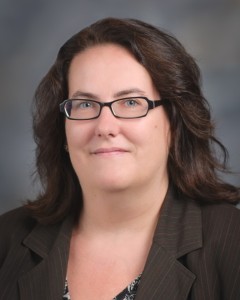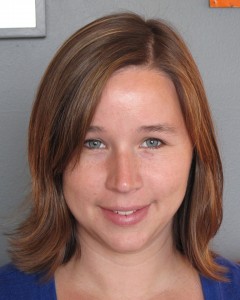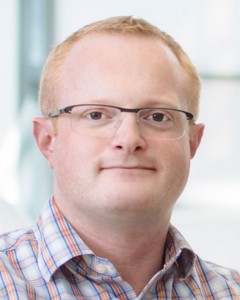Several members of the GSA community have been named as recipients of the NIH Director’s New Innovator Award: Gloria Brar, Francesca Cole, Jessica Feldman, and Daniel Jarosz. More information about each awardee is below.
Established in 2007, the New Innovator award supports unusually innovative research from early career investigators who are within 10 years of their terminal degree or clinical residency and have not yet received a research project grant (R01) or equivalent NIH grant. The GSA members make up nearly 10% of the 41 early career scientists in the 2015 class of new innovators.

Gloria Brar (courtesy NIH)
Gloria Brar, PhD
Assistant Professor of Cell and Developmental Biology
University of California, Berkeley
Project Title: Dissecting the Roles of Pervasive Short ORFs in Meiosis
Gloria Brar received her undergraduate degree in Molecular and Cell Biology from UC-Berkeley. She received her Ph.D. in Biology in Angelika Amon’s lab at MIT, where she studied the regulation of meiotic chromosome cohesion and segregation. Gloria joined Jonathan Weissman’s lab at UCSF as an American Cancer Society postdoctoral fellow and used the new method of ribosome profiling to define the complex regulation of gene expression that underlies meiosis in budding yeast. She is currently an Assistant Professor of Molecular and Cell Biology at UC-Berkeley, where her lab studies the dynamic and non-canonical gene regulation that allows cells to complete the comprehensive cellular remodeling that accompanies meiosis. Towards this end, the Brar lab is investigating the roles of the thousands of short Open Reading Frames that are translated specifically in meiotic cells, specializations to the meiotic ribosome, and the functions of stress response pathways in meiotic differentiation and organelle remodeling.

Francesca Cole (courtesy NIH)
Francesca Cole, PhD
Assistant Professor
Department of Epigenetics and Molecular Carcinogenesis
University of Texas MD Anderson Cancer Center
Project Title: Mechanistic Derivation of Germ Line Mutation by Genome-Wide Mouse Tetrad Analysis
Francesca Cole received her B.A. from Hunter College of the City University of New York and her Ph.D. from Mount Sinai School of Medicine, where she studied muscle and midline development in the laboratory of Rob S. Krauss. She then pursued a postdoctoral fellowship in the laboratory of Maria Jasin at Memorial Sloan-Kettering Cancer Center. She was recruited to the Department of Epigenetics and Molecular Carcinogenesis at the University of Texas MD Anderson Cancer Center as an Assistant Professor in September of 2012. The Cole laboratory investigates mechanisms of homologous recombination and germ line mutation using mouse meiosis as a model system. In addition to the NIH Director’s New Innovator Award, she is a CPRIT Scholar in Cancer Research and an R. Lee Clark Fellow.

Jessica Feldman (courtesy NIH)
Jessica Feldman, PhD
Assistant Professor of Biology
Member, Bio-X
Stanford University
Project Title: Mechanisms Controlling Microtubule Organization during Cell Differentiation
Jessica Feldman received her undergraduate degree in Biology from Columbia University where she studied topics ranging from primate social behavior to axon guidance molecules. She obtained her Ph.D. working with Wallace Marshall at University of California, San Francisco where she studied the genetic regulation of centrosome structure, function, and positioning and the mechanisms dictating internal cellular organization using the unicellular alga Chlamydomonas. Jessica went on to characterize the role of the centrosome during epithelial polarization in C. elegans, working as a postdoctoral fellow with Jim Priess at the Fred Hutchinson Cancer Research Center. Jessica started her own lab in the Biology Department at Stanford University in 2013, where her group studies structural changes that occur at the cellular level during normal development and in disease. In particular, her lab is interested in understanding how microtubules become spatially organized in different cell types during cell differentiation.

Daniel Jarosz (courtesy NIH)
Daniel Jarosz, PhD
Assistant Professor of Chemical & Systems Biology and of Developmental Biology
Member, Bio-X
Member, Stanford Cancer Institute
Member, Stanford Neurosciences Center
Stanford University
Project Title: Protein-Based Molecular Memories in Gene Regulation, Disease, and Development
Dan Jarosz is an Assistant Professor in the Departments of Chemical & Systems Biology and Developmental Biology at Stanford University. He received his B.S. in Chemistry and Biochemistry from the University of Washington in 2001, and then moved to Massachusetts Institute of Technology for his Ph.D., where he investigated mechanisms of replication and mutagenesis in the laboratory of Dr. Graham Walker. Following his graduation in 2007, Dr. Jarosz received a fellowship from the Damon Runyon Cancer Research Foundation to pursue postdoctoral training with Dr. Susan Lindquist, a pioneer in the field of protein folding. In 2013, Dr. Jarosz established his independent group at Stanford University, where his research is focused on molecular mechanisms that influence robustness and evolvability. The Jarosz lab employs multidisciplinary systems approaches ranging from chemical biology to quantitative genetics to understand how these mechanisms contribute to evolution, disease, and development. In addition to receiving the NIH Director’s New Innovator Award, Dr. Jarosz has been named a Searle Scholar and a Kimmel Scholar and has received a Pathway to Independence Award from the NIH and a CAREER Award from the NSF.
These members join NIH Director’s Pioneer Awardee Giovanni Bosco and NIH Director’s Early Independence Awardees Jason Sheltzer and Zhao Zhang in being recognized with high-risk, high-reward awards from the NIH Common Fund.













